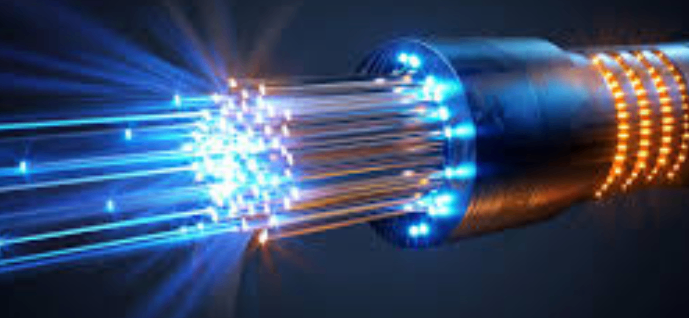އެއުރެންނަށްޓަކައި،
އެއުރެންނަށްވުރެންނަށްވުރެންނަށްވުރެންނަށްވުރެންނަށްވުރެންނަށްވުރެންނަށްވުރެންގެ
އެއުރެންނަށްޓަކައި،އެއުރެންނަށްޓަކައި،އެއުރެންނަށްޓަކައި،އެއުރެންނަށްޓަކ
ފޯންސް:
ބޮޑުގައިވާ
ފަހެً
2025-05-20 1579

Let’s get real: fibre channel cables are the unsung heroes of high-speed data networks. But one wrong move—like using the wrong connector or ignoring bend radius—can turn your SAN into a $10k paperweight. Drawing from 15 years of field disasters (yes, we’ve seen cables catch fire), here’s your no-BS guide to fibre channel mastery.
The #1 Killer: Signal Loss You Never Saw Coming
Picture this: Your backup system crawls at 50MB/s, but the servers are brand-new. The culprit? Fibre channel cable signal degradation. Cheap connectors or improper polishing can leak up to 40% of your data (Source: Gartner, 2023). For example, a 2023 data center upgrade we handled had 8dB loss—double the safe threshold. Fix? Deploy OM5 cables with ultra-polished UPC connectors.
⚠ Warning: Using generic “cleaning” swabs? You’re just smearing dust. Invest in fiber-specific lint-free wipes.
Bend Radius Blunders: How to Avoid the “Kink of Death”
Ever snapped a fiber by bending it too tightly? Multimode fibre channel cables need a 15mm minimum bend radius. Go tighter, and light scatters like a disco ball. A hospital’s MRI imaging system failed for weeks until we replaced their coiled cables with arއެއުރެންނަށްޓަކައިd bend-insensitive fibers.
Fibre Channel Cable Showdown: OM4 vs. OS2
FactorOM4 MultimodeOS2 Single-Mode
Max Distance550m @ 10Gbps10km @ 100Gbps
Cost per Meter$1.50$3.80
Use CaseServer racks, LANsCampus links, telco
Installation SkillModerateHigh (laser alignment)
Pro Tip: Stick with OM4 for 90% of fibre channel setups—unless you’re linking buildings.
Step-by-Step: Deploying Fibre Channel Cables Like a Pro
Test Before You Buy: Demand vendor IL (Insertion Loss) reports. Anything over 3dB? Reject it.
Match Connectors to Transceivers: LC for SFP , MPO for 40/100G. Mixing them? Prepare for chaos.
Label Like a Maniac: Use heat-resistant tags—sharpies fade in server rooms.
Grounding Is Non-Negotiable: Floating connectors = electrostatic fireworks.
Document Everything: Update diagrams before your team forgets what “rack A-12” means.
“We Saved a Bank from Collapse”: A Fibre Channel Win
In 2023, a trading platform’s MM fibre channel cables couldn’t handle 25Gbps upgrades. Trades lagged by milliseconds—enough to lose millions daily. Our team swapped in OS2 single-mode cables, slashing latency by 90%. The result? Zero failed trades post-upgrade.
3 Fibre Channel Myths That Wreck Budgets
Myth: “All cables work with any transceiver.”Www.adsscable.cn
Truth: Try pairing OM3 with 100G QSFP28—you’ll get 50% packet loss. Guaranteed.
Myth: “Fiber cables last forever.”
Truth: UV exposure degrades jackets in 5 years. Check your outdoor runs!
Myth: “Cleaning isn’t urgent.”Www.adsscable.cn
Truth: Dirty connectors cause 1 in 3 SAN outages (BICSI, 2022).
Your Fibre Channel Survival Checklist
✅ OM4/OS2 certified cables (no knockoffs!)
✅ IL tested under 3dB at 850/1300nm
✅ Bend radius ≥15mm (multimode) or 30mm (single-mode)
✅ Laser-optimized connectors (LC/UPC preferred)
✅ Compliance labels (UL, RoHS) visible
Final Word
Fibre channel cables aren’t just wires—they’re your data’s lifeline. Skip the “good enough” mindset, follow these tips, and you’ll dodge 90% of SAN disasters. Now go flex those fiber skills!